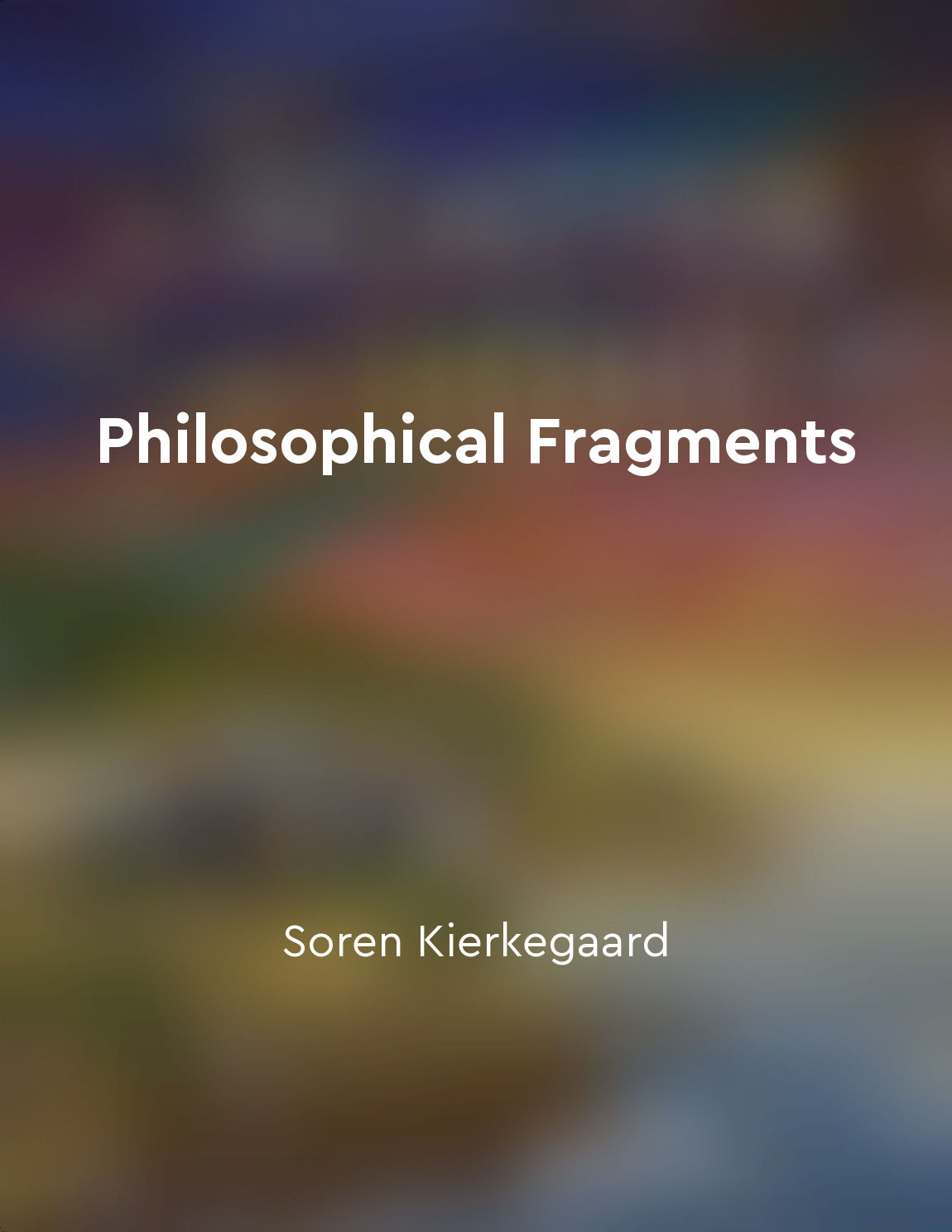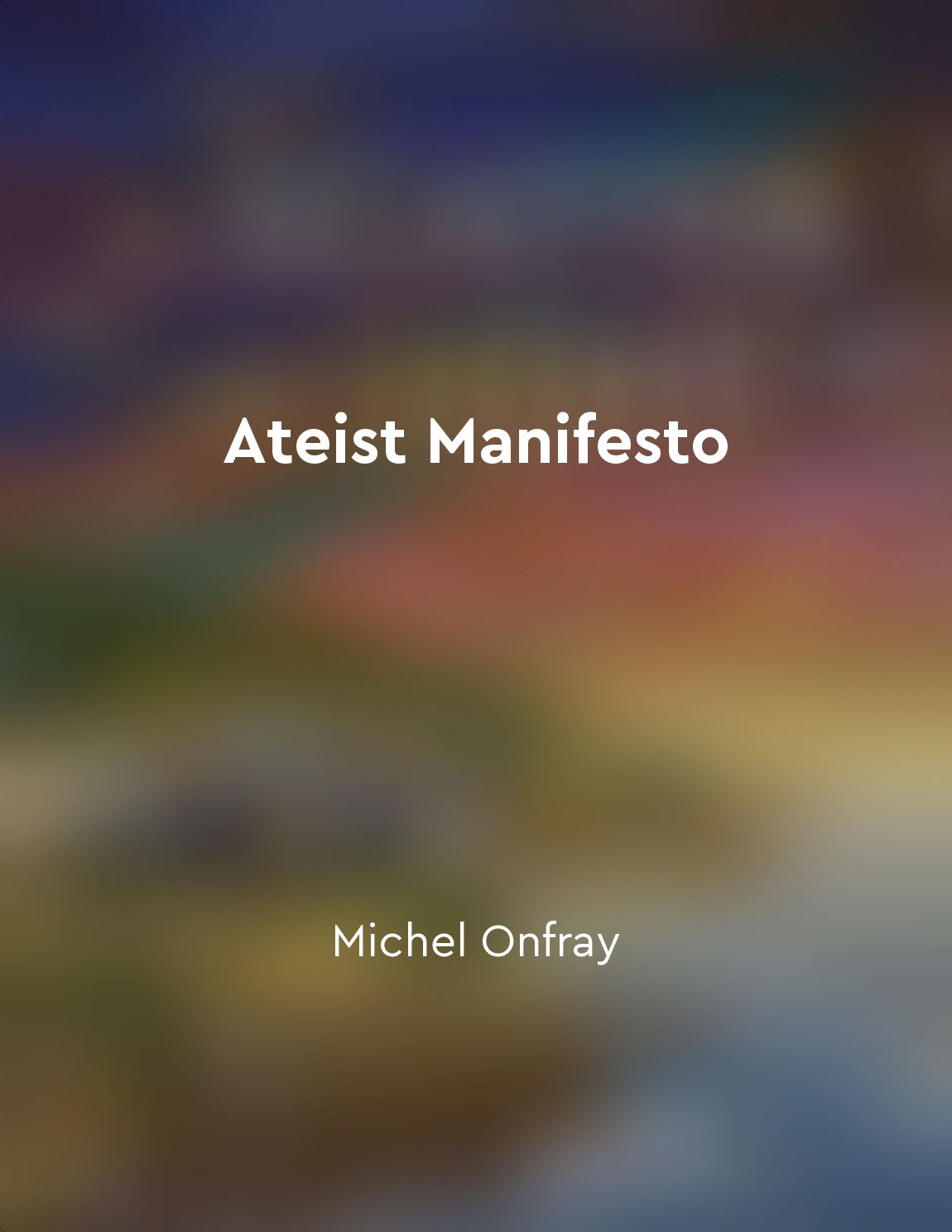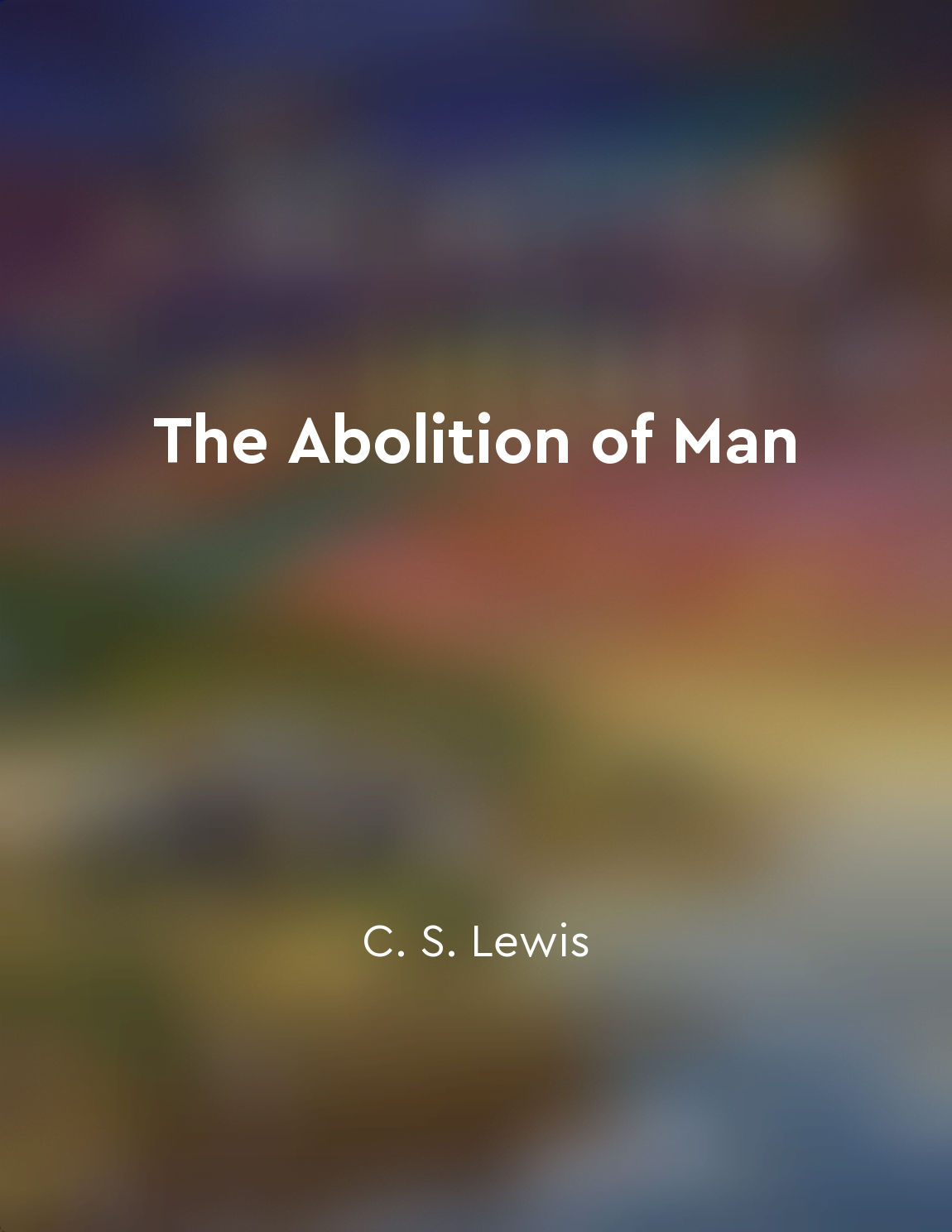Religion within the bounds of reason alone from "summary" of Immanuel Kant: Prolegomena to Any Future Metaphysics by Immanuel Kant
The idea of religion within the bounds of reason alone refers to the belief that religious doctrines and principles should be subject to rational scrutiny and analysis. This concept suggests that religious beliefs should not contradict reason or go beyond what can be known through reason. In other words, religious truths should be in harmony with our rational faculties and should not require blind faith or acceptance without evidence or justification. Immanuel Kant argues that reason is the ultimate authority when it comes to determining the validity of religious claims. He maintains that faith should be based on rational understanding and that religious beliefs should be able to withstand rational critique. Kant believes that reason can help us distinguish between genuine religious insights and superstition or irrationality. Kant also emphasizes the importance of moral principles in religion. He argues that the moral teachings of religion should be in line with the dictates of practical reason. According to Kant, true religious faith should inspire individuals to lead moral and virtuous lives, and religious doctrines should reinforce ethical values and principles.- The concept of religion within the bounds of reason alone highlights the importance of critical thinking and rational inquiry in matters of faith. By subjecting religious beliefs to the scrutiny of reason, Kant aims to establish a foundation for a rational and morally grounded form of religion that is consistent with our capacity for understanding and moral reflection.
Similar Posts
Human consciousness is a mystery that science struggles to explain
The intricacies of the human mind have long been a source of fascination and wonder for scientists and philosophers alike. From...

True wisdom is found in the recognition of one's own limitations and fallibility
True wisdom, according to the teachings within the text, is a profound understanding that extends far beyond mere intellectual ...
Time and space are forms of intuition
In order to understand the concept that time and space are forms of intuition, we must first delve into Immanuel Kant's philoso...
Science relies on observation
The foundation of all scientific knowledge lies in observation. It is through our senses that we come to know the world around ...
Paralogisms reveal errors in applying categories to the self
The Paralogisms, as I have expounded upon, serve to uncover the fallacies that arise when one attempts to apply categories to t...
Writing systems aid in societal organization
Writing systems have played a crucial role in shaping the organization of societies throughout human history. The ability to re...

Atheists prioritize evidencebased reasoning
Atheists approach the world with a particular mindset: evidence-based reasoning. They value empirical evidence, verifiable fact...
Feuerbach's influence on socialism undeniable
Feuerbach's impact on socialism cannot be overstated. His ideas have left an indelible mark on the socialist philosophy, shapin...

The implications of dismissing moral values as mere preferences
In the modern world, there is a dangerous trend to dismiss moral values as nothing more than personal preferences. This view su...
Medieval philosophers merged classical knowledge with religious teachings
During the medieval period, philosophers played a crucial role in shaping the intellectual landscape by combining the teachings...

